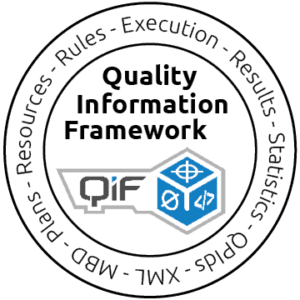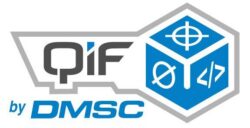ISO QIF is made up of 8 parts:
Part 1: QIF Overview – Description of the general content and structure of the entire QIF information model, including the highest level data structures.
Part 2: QIF Library – Core QIF data structures used throughout different QIF application areas.
Part 3: QIF MBD – Or Model-Based Definition, QIF MBD defines a digital data format to convey part geometry (typically called the “CAD” model) and information to be consumed by downstream manufacturing quality processes, such as PMI.
Part 4: QIF Plans – Defines the digital format to convey measurement plans, which could include a set of features and characteristics to be measured, resources to be used, measurement procedure to be used, etc.
Part 5: QIF Resources – Digital definition of dimensional measurement resources, sufficient for use in generating a high level measurement plan for product certification, acceptance, or any other common application of dimensional measurement data.
Part 6: QIF Rules – Defines for format for specifying measurement rules, which are also sometimes referred to as measurement templates or measurement macros.
Part 7: QIF Results – Defines the format for specifying results of quality operations.
Part 8: QIF Statistics – Used to define statistical analysis of a set of results (e.g., individuals, averages, standard deviations, max, min, etc.)
QIF was elevated to an ISO Standard in August 2020. Click for more information on ISO 23952:2020

